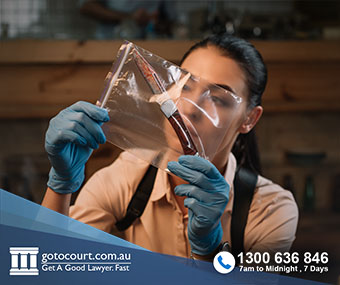Call our lawyers
now
or,
have our lawyers
call you
Assault Offences in Tasmania
Updated on Dec 12, 2022 • 4 min read • 736 views • Copy Link
Assault Offences in Tasmania
Crimes of assault are among the most serious offences that can be committed against the person. Like other states and territories, Tasmania has a number of assault offences which reflect the varying degrees of seriousness of different assaults. Some of these are summary offences (which are deal with by a magistrate) and others are dealt with on indictment (in the Supreme Court). This page deals with assault offences in Tasmania.
Legislation
Summary assault offences are found in the Police Offences Act 1935, whilst crimes of assault are found in the Tasmanian Criminal Code.
These offences include:
- common assault
- aggravated assault
- assaulting a police officer or other public officer
- indecent and sexual assaults, and
- wounding or causing bodily harm.
Common assault
Common assault is committed in Tasmania if a person, without the consent of another person, intentionally applies force to that person, or attempts or threatens to apply force to that person or deprives that person of their liberty.
Common assaults are governed by section 35 of the Police Offences Act 1935 and section 184 of the Criminal Code Act 1924 and can be either direct or indirect. For example, if a person assaults a person who is holding a child and the child is also injured, that child is also a victim of the assault. However, reasonably necessary acts in the common intercourse of life (eg tapping a person’s shoulder to get their attention) are not assault.
Unlike in other jurisdictions, in Tasmania, words alone cannot constitute an assault; for an assault to be committed without physical contact, a threatening gesture is required.
The summary offence of common assault is dealt with summarily by a Magistrates Court (or Children’s Court, if the accused is under 18) with a maximum penalty of 20 penalty units or 12 months imprisonment. More serious instances of common assault are dealt with by the Supreme Court where a maximum penalty of 21 years imprisonment applies to all offences, except where another penalty is specified in legislation.
Aggravated assault (summary offence)
Aggravated assault occurs when a person commits an assault under section 35 of the Police Offences Act and the assault is of an aggravated nature. What is ‘aggravating’ is not defined in the Act. Cases decided in Tasmania confuse this further by saying that an assault will be of an ‘aggravating nature’ if there is a factor present that increases the gravity of the offence. An assault against a youth will not necessarily reach this bar, depending on the age difference between the perpetrator and the victim. If a person commits an assault under the police Offences Act, whether it is of an ‘aggravated nature’ will depend on the circumstances of the assault. The maximum penalty for this offence is 50 penalty units or two years imprisonment.
Aggravated assault (indictable offence)
Under section 183 of the Criminal Code, aggravated assault is a crime punishable on indictment. This means that the accused has a right to trial by jury when charged with this offence.
An aggravated assault under this provision occurs when an assault is committed with the intention to commit a crime, while resisting or preventing arrest or while assaulting a person who is lawfully seizing your property. The maximum penalty for aggravated assault is 21 years imprisonment. There is also a separate offence for assaulting a woman knowing her to be pregnant, which also carries a maximum penalty of 21 years imprisonment.
Assaulting police or public officers
Tasmania has a summary offence and an indictable offence of assaulting a police officer in the course of their duty.
The summary offence, which has a maximum penalty of 100 penalty units or three years imprisonment, extends to threatening or intimidating the police officer. It is also a summary offence to assault a public officer in the course of their duty, which has a maximum penalty of 50 penalty units or two years imprisonment.
The indictable offence of assaulting a police officer has a maximum penalty of 21 years imprisonment.
Wounding or causing bodily harm
It is an offence under section 172 of the Criminal Code to wound or cause grievous bodily harm to another person. This includes life threatening and serious bodily injuries. The maximum penalty for wounding is 21 years imprisonment.
Indecent and sexual assault
It is an offence under section 127 to indecently assault a person in Tasmania. When this is dealt with as a summary offence, it carries a maximum penalty of 50 penalty units or two years imprisonment.
As an indictable offence, indecent assault is punishable by a maximum of 21 years imprisonment.
An aggravated sexual assault of another person is also a crime punishable by up to 21 years imprisonment.
If you require legal advice or representation in any legal matter, please contact Go To Court Lawyers.


Affordable Lawyers
Our Go To Court Lawyers will assist you in all areas of law. We specialise in providing legal advice urgently – at the time when you need it most. If you need a lawyer right now, today, we can help you – no matter where you are in Australia.How It Works








1. You speak directly to a lawyer
When you call the Go To Court Legal Hotline, you will be connected directly to a lawyer, every time.


2. Get your legal situation assessed
We determine the best way forward in your legal matter, free of charge. If you want to go ahead and book a face-to-face appointment, we will connect you with a specialist in your local area.


3. We arrange everything as needed
If you want to go ahead and book a fact-to-face appointment, we will connect you with a specialist in your local area no matter where you are and even at very short notice.



















